Enab Baladi – Jana al-Issa
In the face of a sharp decline in the value of wages in regime-controlled areas, compared to the value of the pound against the US dollar, and the purchasing power, the head of the Syrian regime, Bashar al-Assad, issued a decree on August 15 stipulating an increase in public-sector salaries by 100% after months of talks about it.
The increase that occurred, despite its high rate and double value, did not change much in terms of the ability of the population to meet their needs, which amount to many times their income, whatever its value.
The decision to increase salaries was followed within hours by an increase in fuel prices by up to 300%, which also affected the fares of transportation and various basic commodities, which made the increase that workers had been waiting for “completely useless.”
Since the increase, the regime’s government talk has been repeated about covering the increase by reducing subsidies, amid unofficial talk about the government’s intention to completely remove subsidies from citizens.
Living needs are 55 times greater than one-month salary
After the most recent increase in mid-August, the minimum salaries for public sector workers reached 185,940 Syrian pounds, while the average cost of living is about 55 times the minimum salary, according to statistics and specialized reports.
The minimum salary after the increase is equivalent to about $13.3 compared to the exchange rate at the time the report was written.
The trading rate of the Syrian pound against $1 reached 13,700 on September 25, according to the S-P Today currency website.
In the middle of this year, the average cost of living for a Syrian family consisting of five individuals, according to the Qasioun Cost of Living Index, exceeded the barrier of 6.5 million Syrian pounds.
While the minimum cost amounted to about four million and 100,000 Syrian pounds, making clear the size of the gap that separates the minimum wage from the average cost of living, which is constantly rising.
Following the increase, the size of these needs doubled as a result of the significant increase in prices accompanying this increase, as the average cost of living rose to more than 10.3 million Syrian pounds, while the minimum cost of living doubled to about 6.5 million Syrian pounds, according to the Qasioun Index.
Feb.6 quake halts, Pound delays
When announcing the state’s general budget for 2023, the salaries and wages bloc in it did not indicate a significant possibility of an increase in the value of salaries when the Minister of Finance, Kinan Yaghi, linked the increase in salaries to the revenues collected for the state treasury on the one hand, and the improvement of the economic reality on the other hand.
After months of talking about a possible increase, the head of the Budgets Committee in the Syrian People’s Assembly, Rabie Qalaji, said that there was a project to increase salaries and wages by a “good” percentage, but the earthquake that struck four Syrian governorates on February 6 stopped it.
The amount was used to respond to the repercussions of the earthquake, which depleted the allocated funds, he said.
In an interview with the local Ninar FM radio station on May 25, Qalaji considered that the issue of increasing salaries had not been canceled but had been postponed because the general situation required an increase in salaries.
Since the beginning of the year, the pound has witnessed a significant decline in its value, losing about 100% in seven months; however, the deterioration of the value of the pound and the accompanying significant rise in prices and weakness in purchasing power, requires a large increase in salaries to match the size of the needs.
Mohammad al-Abdullah, a fellow at the Omran Center for Strategic Studies, told Enab Baladi that the Syrian economy is in a state of clear deterioration, as wages are far below the minimum cost necessary for living amid high inflation values and a significant decline recorded in the value of the pound against foreign currencies, and with no accurate forecasts to the point of its further deterioration.
The economic scholar believes that any increase in the value of salaries will only cover a small portion that does not compare to the size of the needs since the “government” is unable to approve a “rewarding” increase whose impact will be felt by the citizen, which has forced it during the recent period to provide “palliative” solutions in the form of grants to employees, and civilian or military retirees, to “throw dust in the eyes.” Such a step is intended to deceive, mislead, and withhold the truth from citizens.
The government’s inability to provide a “rewarding” increase comes primarily due to the huge size of the needs in light of the current levels of inflation, in addition to the significant absence of production components, according to al-Abdullah.
Most Syrians resort to relying on more than one source to try to balance income and expenses. The most prominent of these sources are remittances from expatriates outside Syria and reliance on second jobs. Families also dispense with basic necessities in their lives to reduce their rate of spending.
According to a report issued on August 10, Syria ranked third in the world with the level of inflation at 238% on an annual basis, after Zimbabwe and Venezuela, according to the Hanke Dashboard for Measuring Economic Inflation in many countries, without relying on government statistics.
According to the data, the last official update of the inflation rate in Syria was in September 2019, and it was then 34.50% on an annual basis.
Salary drops by more than half in seven months
Dr. Firas Shaabo, an expert in financial and banking sciences, told Enab Baladi that when preparing the state’s general budget for the year 2023, the official exchange rate for one dollar was about 3,000 pounds, and in the black market, it was about 6,000 pounds, while the recent deterioration of the pound made the real value of the budget decreases by about half.
The decrease in the budget by this percentage is an indication of the state’s complete inability to secure any additional income or economic visions that would improve the living conditions of citizens, which further deepens the gap between spending and income in the country, according to Shaabo.
The economist explained that the percentage necessary for the increase must not be less than 1,000%. For example, if someone has a salary of 100,000 pounds, the salary, according to this percentage, becomes one million pounds, which is still not enough to secure a better life.
The significant deterioration of the pound since the beginning of this year led to a significant decrease in the value of the salary, as the price of the dollar at the beginning of the year was about 7,150 pounds, while at the end of last July, it reached about 13,200 Syrian pounds, which means a decrease in the average wage from $20.8 at the beginning of the year to $11.2 at the end of July, before the latest increase.
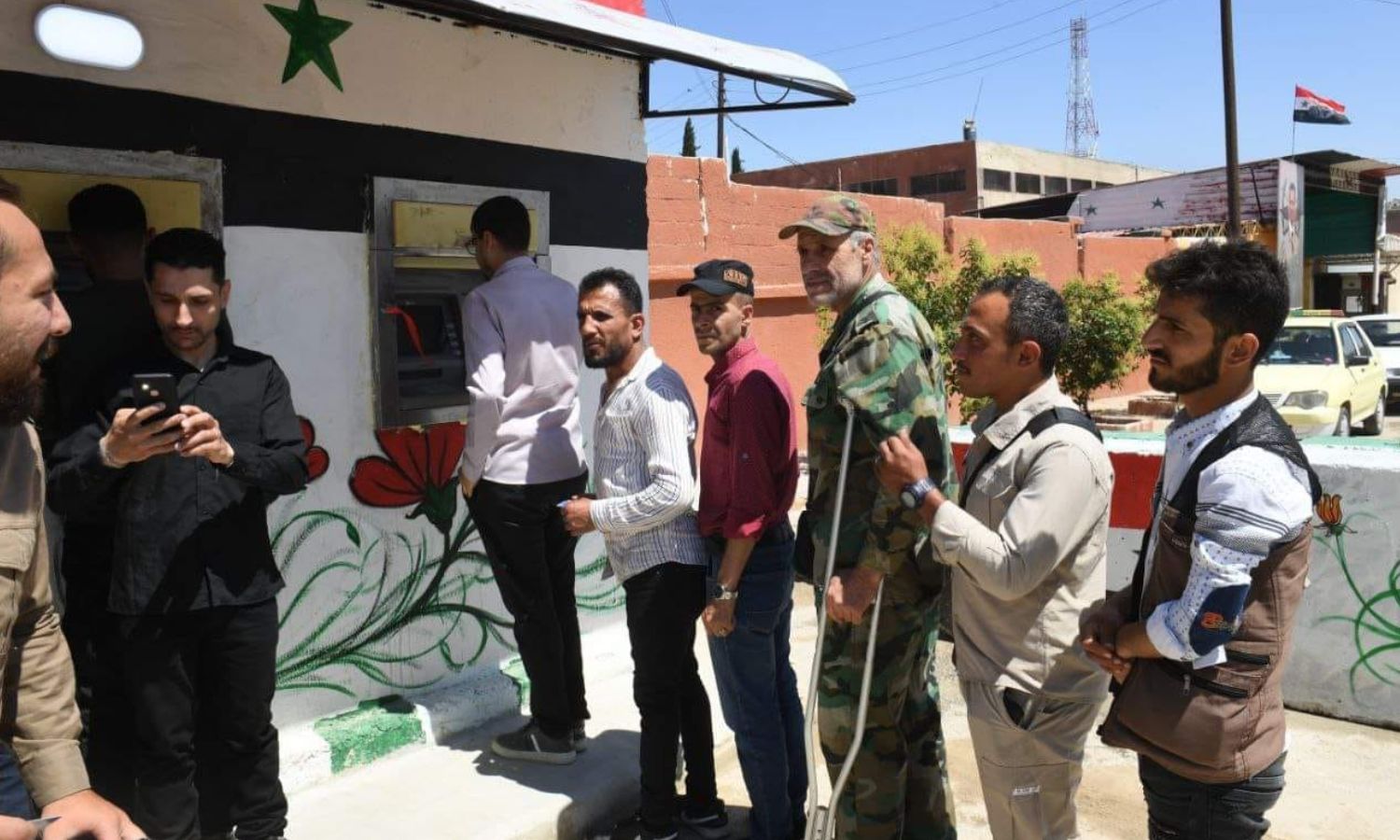
Employees receiving their salaries from the Commercial Bank’s ATMs in the northern Aleppo city – June 21, 2023 (Commercial Bank of Syria)
Salaries and price increases: A methodology that has existed for decades
There is a prevailing pattern in the process of increasing salaries based on two basic pillars: raising the prices of basic materials by the regime’s government and then increasing salaries, or vice versa.
The salary increase comes before the price increase, within a narrow time frame, according to a study by Syrian researcher Mohsen al-Mustafa, entitled “Salary Increases: A Syrian Regime Policy Driving the Militarization of Society,” published in November 2022.
According to the study, the regime’s government has used indirect taxes for decades to finance increases in salaries and wages, which are imposed on petroleum products, cement, and fertilizers, in addition to mineral oils and other products.
These taxes are called “price differences” because the public institutions that market these materials transfer the amounts directly to the Ministry of Finance.
Raising energy prices contributed to financing the increase in salaries and wages and thus increased the costs of Syrian products and service prices. This increase led to a reduction in the ability of Syrian industry to compete in the national and international markets.
It is noted that the increase in basic materials is not always accompanied by an increase in salaries and wages, and the regime’s government may raise the prices of basic materials several times before raising salaries and wages, which directly indicates the presence of “economic malfunction” in the country and a defect in the production environment.
The study also indicates that these increases are nothing but an attempt to control prices and unreal increases and even encourage an increase in inflation as well.
The recent decision to raise prices after raising salaries sparked a great wave of anger among residents in regime-controlled areas and several governorates and regions in southern Syria witnessed a wave of protests and demonstrations sparked by the deteriorating living and economic reality, and they are still continuing to this day demanding the overthrow of the regime.
An increase that covers one day’s expenses
Iman Tarabiyah, an employee at the Real Estate Bank in the southern As-Suwayda governorate, whose salary after the increase reached 240,000 pounds, did not receive the increase this month, considering that it is not enough for one day’s expenses.
In addition to the basic needs of food and materials, Tarabiyah told Enab Baladi that she is committed to paying a set of electricity, water, and Internet bills, which prompts her to work in the evening in the field of sewing.
The increase in the needs of Tarabiyah’s family, a mother of three children, requires that her husband also increase his working hours, as he works as a taxi driver.
In exchange for this limited family income, the woman estimated that her family needed five million Syrian pounds just to secure its basic needs of food, water, and medicine.
While the salary increase received by Hossam Fatoum, who lives in Salamiyah city in the Hama countryside, is enough to buy two broiler chickens, he told Enab Baladi.
Fatoum has been working as an Arabic language teacher in a middle school in Salamiyah for five years, and his salary, after the increase, was set at 250,000 pounds.
To support his family, which consists of a wife and two children, Fatoum is forced to give private lessons in the Arabic language to secondary and middle school students, in exchange for receiving 4,000 pounds from each student for one hour of teaching.
As a result of his inability to fully meet needs, Fatoum’s family is forced to buy only the necessities and basic materials, and his wife sometimes works to grow some types of vegetables in the home garden to depend on, even if only in a small way.
Samir, 43, an employee in the Health Directorate in the coastal city of Latakia, told Enab Baladi that his monthly salary after the increase reached 220,000 pounds, which is enough to prepare lunch for a few days of the month only.
Samir gives his monthly salary to his wife and divides it into 25,000 pounds for the price of bread between “subsidized” and “free market” because the subsidized allocations are not enough for his family of five people.
“It is not possible to balance needs and salary no matter how hard I try. I work as a taxi driver within the city. I do not stay at work until it ends at three o’clock. Rather, I go out at 12 noon to work on the taxi until approximately 11 o’clock at night.”
“I only work to get enough food for my family, as taxi work has become difficult with people’s reluctance to use them except for necessity,” Samir said.
Samir’s family needs a minimum of 5 million pounds to achieve a “decent living,” which includes paying the rent for the house and obtaining food, medicine, and other necessary needs, he added.
As a result of the significantly low wages in government sectors, Sondos, 39, an employee in the Finance Directorate in Latakia, tried to resign from her job or take a long leave without pay in order to invest her time in a private job that would bring her more income.
Sondos’ attempts were not successful, she told Enab Baladi because her managers rejected her requests for resignation or leave more than once, explaining that her salary after the increase amounted to about 249,000 pounds.
To secure the family’s needs, Sondos’s husband, an information engineer, works in a government institution in addition to his work as a programmer with several companies outside Syria using a remote work system, explaining that the needs require searching for sources of income in foreign currency to afford to live.
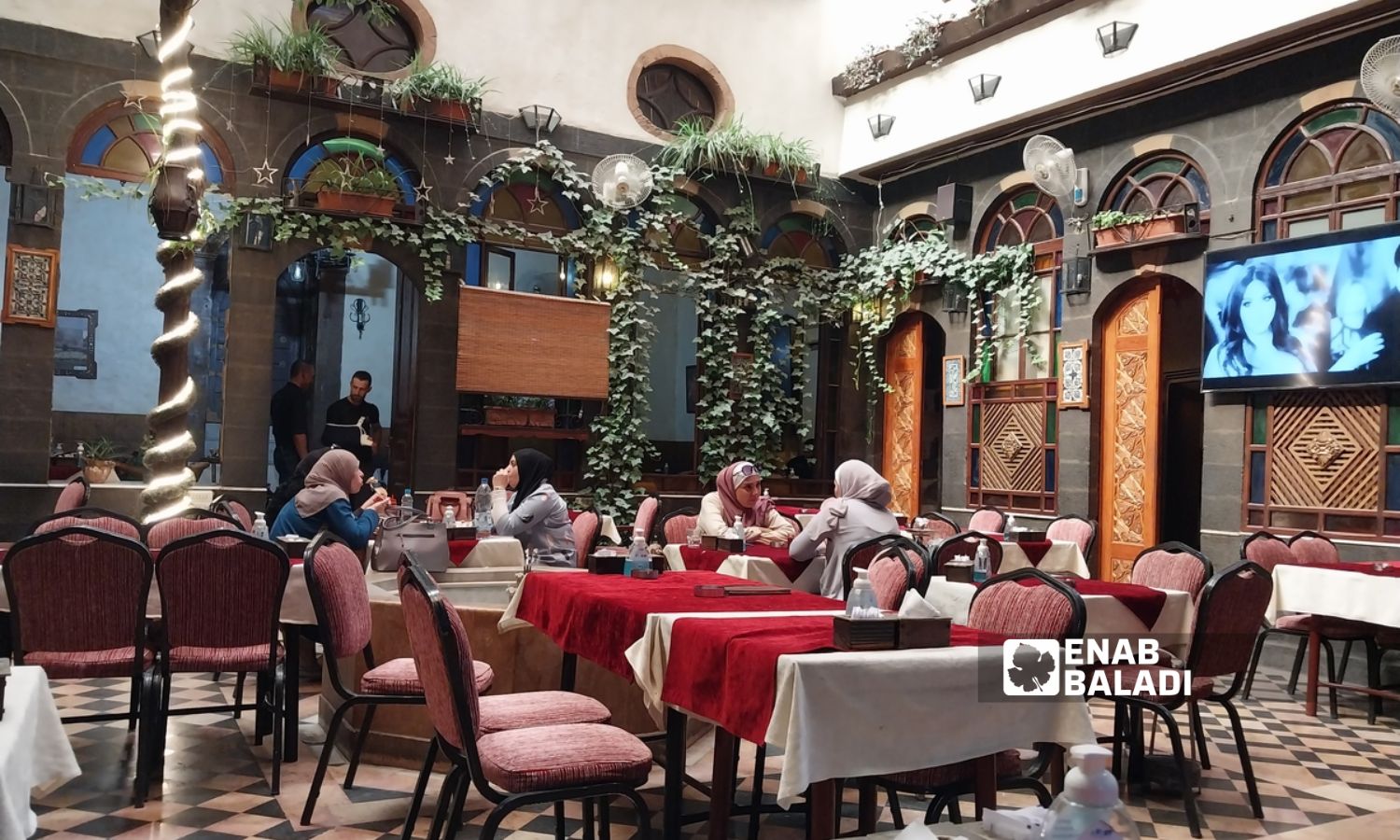
A cafe in an old Damascene house in the Bab Touma neighborhood in Damascus – July 11, 2023 (Enab Baladi/Sarah al-Ahmad)
Lifting the subsidies is the only way out
A decision to raise fuel prices was issued just hours after the decision to increase salaries, sparking a great wave of anger among people.
In separate statements, officials in the regime’s government indicated its intention to amend the government subsidy mechanism in a way that may affect most of the subsidized goods and materials, even though they are few.
The savings achieved from partially lifting subsidies on the prices of oil derivatives, according to the decision issued on August 15, amounted to 5,400 billion pounds, which were redistributed according to three axes, according to what was stated by the Assistant Minister of Economy for Foreign Trade Affairs, Shadi Jawhara, on the 25th of the same month.
The savings were distributed to increase salaries on the one hand and to grants and compensation issued by various decrees, as well as a “small” portion to reduce the state’s general budget deficit.
The cost of increasing salaries and wages, according to Decree No. 11, issued on the same day, amounted to 4,000 billion pounds.
The remaining 1,400 billion pounds were distributed in the form of grants and work-related compensation for teachers, doctors, and other specialized groups, in addition to reducing the budget deficit.
Political economy expert Ibrahim Yassin told Enab Baladi that the policy of lifting subsidies is not a solution to the economic reality that the country has reached but rather exacerbates the problem in terms of increasing inflation as a result of weak liquidity among consumers, thus increasing the gap between the poor and the rich.
The expert added that there is a class of society that is suffering from malnutrition and severe poverty, with the accompanying psychological and moral repercussions that increase the destruction of society.
As for the options available to reduce the deficit, they can be summarized in one way, which is the political solution that all the Syrian people aspire to reach instead of removing the support that the regime’s government is working on.
Yassin explained that the government is gradually reducing subsidies, either by raising the prices of subsidized goods, reducing their quantity, or not offering them at all.
It is not only the goods that are concerned with support but rather all supported institutions. For example, the procedures of the public health sector have become very complex, and workers in those centers often advise patients to try to go to private health centers and other sectors.
In light of the “fossilized mentality” and lack of accountability, the government can issue whatever decisions it wants, regardless of their results, Yassin says.
How did the government subsidy start?
Syria has adopted a socialist approach in managing its political and economic affairs since 1936, a system based on state ownership of the means of production, management, and economic cooperation, according to a study published by the Arab Center for Research and Policy Studies in March 2022.
With the arrival of Hafez al-Assad to power in 1970, the restrictions imposed on individual projects and the private sector were eased, but this did not help much in stimulating the economic cycle in the country due to corruption and the continuation of some structural restrictions that discourage investment.
In the 1980s, Syria found itself politically isolated and in the midst of a stifling economic crisis, in which the real GDP per capita declined by 22% between 1982 and 1989.
The widespread nationalization of laboratories, factories, and lands also resulted in the flight of a large portion of national capital abroad, and a government capitalist class emerged that benefited from corruption and the absence of economic freedoms to create great wealth.
These factors led to a deterioration in the living situation and high rates of poverty and unemployment, especially among young people. The industrial and agricultural sectors declined, and their contribution to the gross domestic product decreased to unprecedented levels.
With the end of the Cold War and the cessation of foreign aid, starting in 1990, the Syrian government implemented a series of economic reforms, under which the economy witnessed strong growth throughout the 1990s.
This was reflected in the per capita GDP during the period between 2000 and 2010, as the average Syrian per capita income doubled from approximately 1,200 US dollars in 2000 to about 2,800 dollars in 2010.
Mismanagement of the crisis that erupted after the start of the Syrian revolution in 2011 caused huge losses to the Syrian economy, the value of which the United Nations Economic and Social Commission for Western Asia (ESCWA) estimated at about $442 billion at the end of 2020.
Massive violations
From the beginning of February 2022, the regime’s government began implementing the removal of subsidies from the holders of the state-granted subsidy card, better known as the smart card, according to certain categories and characteristics, including the presence of a commercial register with a family member, or a car with certain specifications, and other criteria.
The study considered that, under the current circumstances, stopping support means the need to formulate a new social contract, but continuing with the project to reduce the cost of government support is currently met with government procedures and policies that confuse the Syrian economic scene, such as administrative procedures to stabilize the exchange rate, rationalize imports, and turn a blind eye about the increasing activity of the informal sector, and the growth of the phenomenon of the war rich.
In addition to the above, the decision carries a number of legal and constitutional violations, as it violates the principle of equality among all citizens in rights and duties stipulated in the third paragraph of Article 33 of the 2012 Constitution of the Syrian Arab Republic.
In addition, giving the government, as an executive authority, legal status for a decision that affects a large number of citizens without returning to Parliament violates Article 75 of the same constitution, which specifies the responsibility of approving laws to the People’s Assembly.
Among the constitutional violations of this decision also is that it classified people according to the engine capacities of their cars and the years they were manufactured, or the real estate they own, or according to their commercial records, and on the basis of the year in which the citizen left the country, knowing that all of these classifications are established rights according to the Syrian constitution and international laws.
Securing housing, work, and owning a car are among the basics of life and not a luxury that indicates that its owner has large capital and does not need support. Syrian law also guarantees every citizen the right to leave the country and return to it whenever he wants.
The powers are in the hands of the People’s Assembly
Public law expert and researcher at the Syrian Dialogue Center, Dr. Ahmed Qorby, said that support in all countries of the world is an essential part of the state’s general budget, which includes what he calls “facilitation expenditures,” and includes expenses for price subsidies and aid of a social nature that the government provides to the needy people.
Since the general budget in Syria is issued and amended according to a law issued by the People’s Assembly, meaning that even the President of the State cannot amend the budget in accordance with what the constitution explicitly stipulates in its several articles (75-79-65), which limit these powers to the People’s Assembly, The government does not have the right to make decisions related to completely lifting subsidies.
In the legal case of lifting subsidies, Qorby pointed out that there are several levels. In principle, if the decision to lift subsidies is issued by the government only, this is considered an illegitimate decision because it will be issued by an incompetent party.
If the decision to lift support is issued by law by the People’s Assembly, a distinction must be made, as the 2012 Constitution of the Syrian Arab Republic stipulates in several articles the equality of burdens among citizens, including those related to economic principles, stating that economic policy aims at social justice, and in a separate article “The state guarantees the protection of producers and consumers,” and Article 33 of the constitution stipulates that “citizens are equal in rights and duties.”
In the event that the People’s Assembly issues a law to lift subsidies, the matter here is considered constitutional for the reason that the previous articles, although they are constitutionally stipulated, they do not clearly and explicitly stipulate support for necessary goods, and they are called here “guidelines.”
The guidelines usually give recommendations to the government but do not stipulate binding legal principles, according to the legal expert.
if you think the article contain wrong information or you have additional details Send Correction
النسخة العربية من المقال
-
Follow us :
Most viewed
- Al-Sharaa and Abdi reach agreement on merger of SDF into Syrian state
- Did Syrian state fall into coastal ambush?
- Syrian Defense Ministry appoints "Abu Amsha" as Hama Brigade commander
- Al-Sharaa sets steps to overcome Syrian coast’s bloody events
- 311 casualties among government forces and civilians in Syrian coast












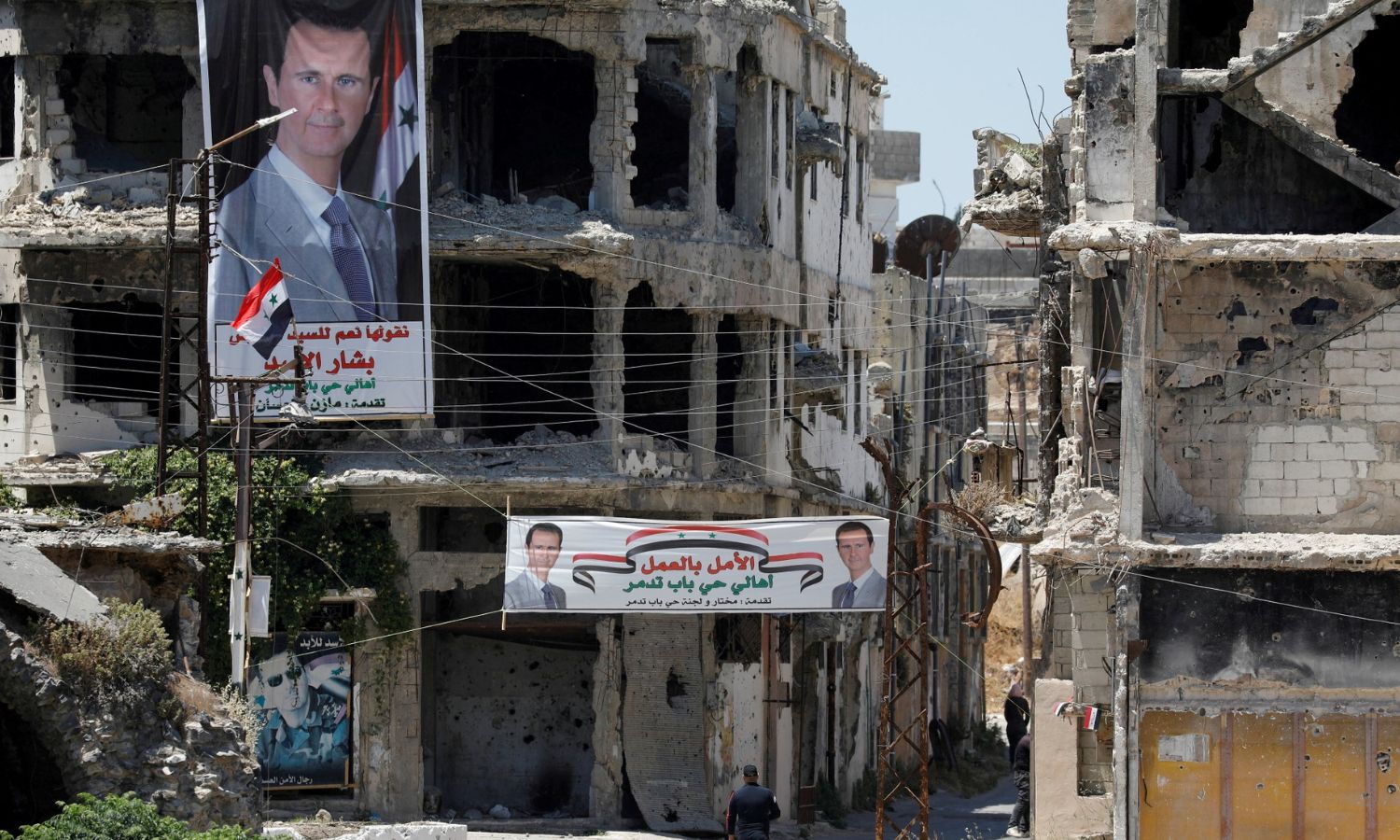
 Two banners calling for Bashar al-Assad’s election were hung on the destroyed buildings in central Homs city (Reuters)
Two banners calling for Bashar al-Assad’s election were hung on the destroyed buildings in central Homs city (Reuters)





 A
A
A
A
A
A
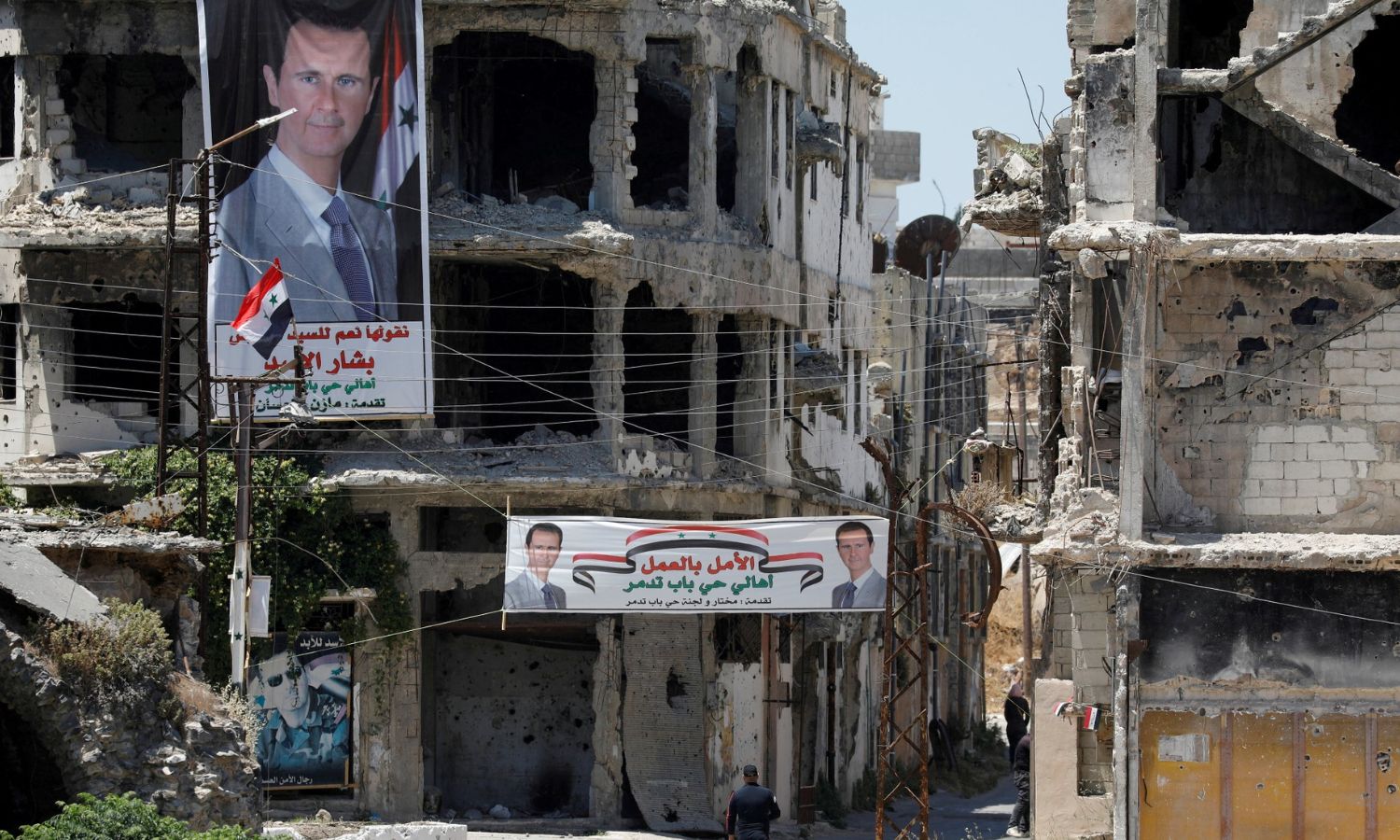
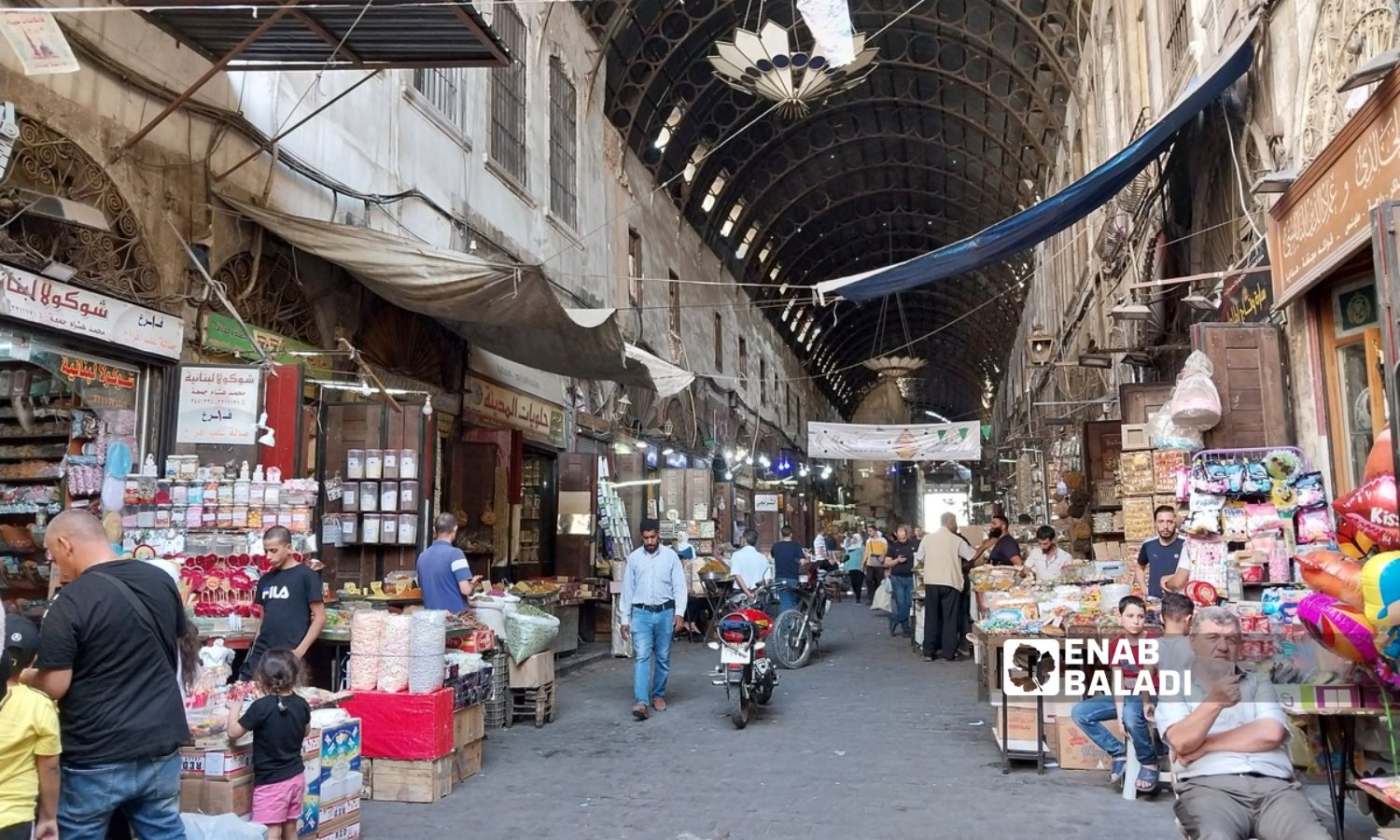
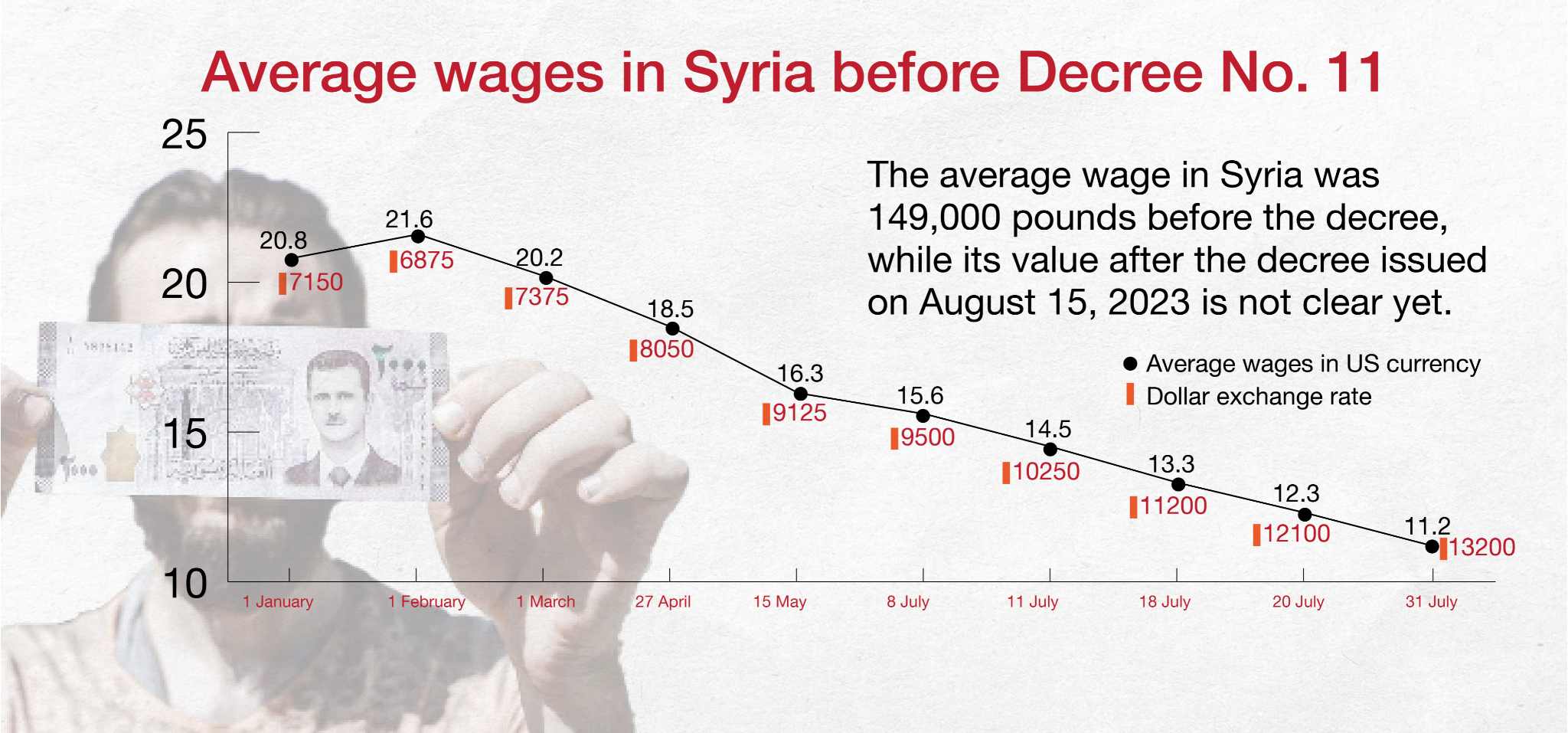
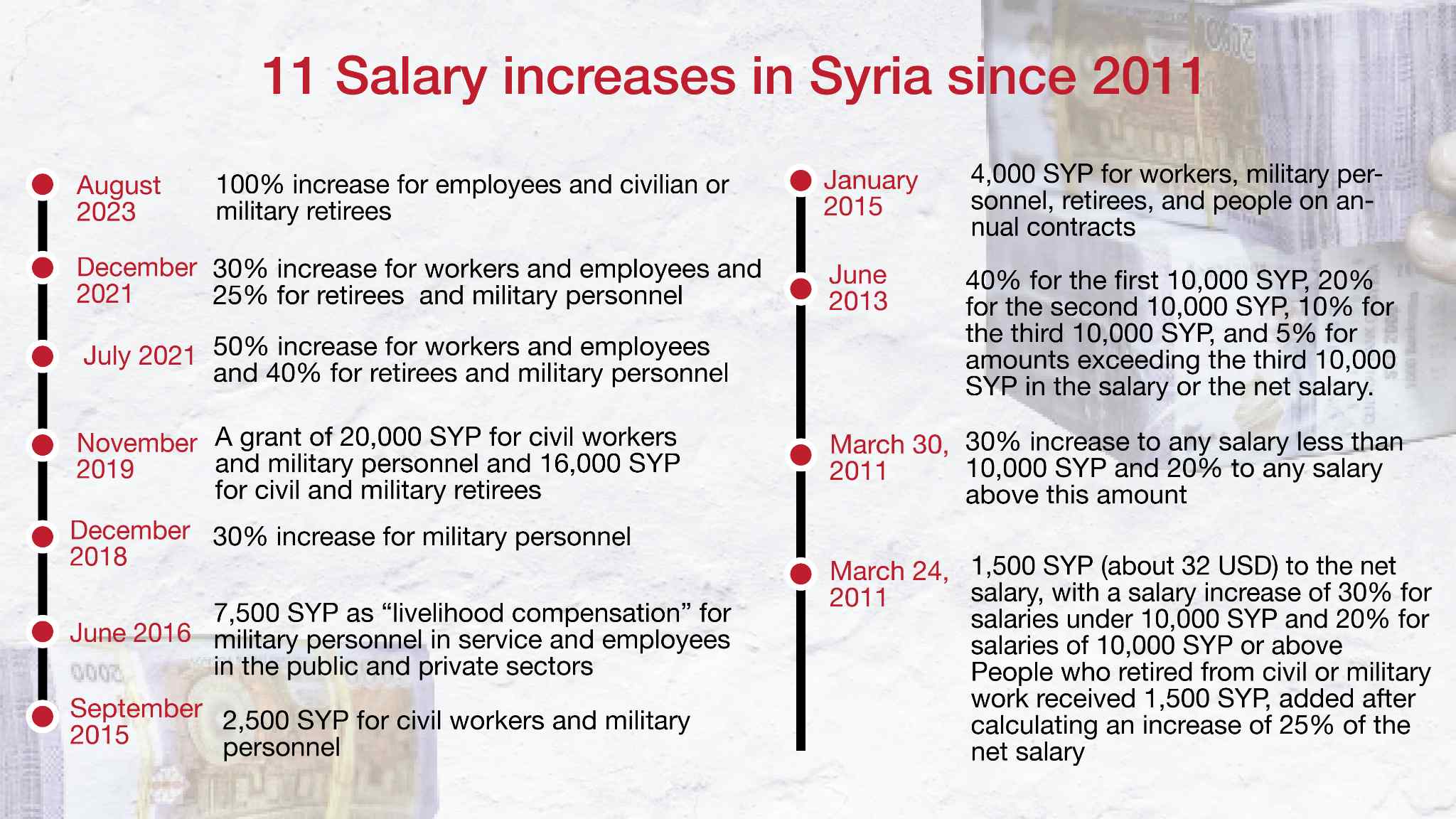




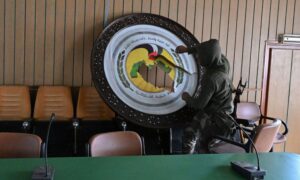
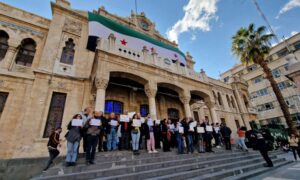
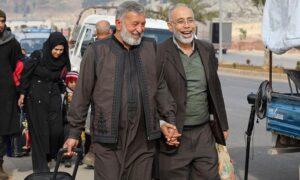
 More In-Depth
More In-Depth